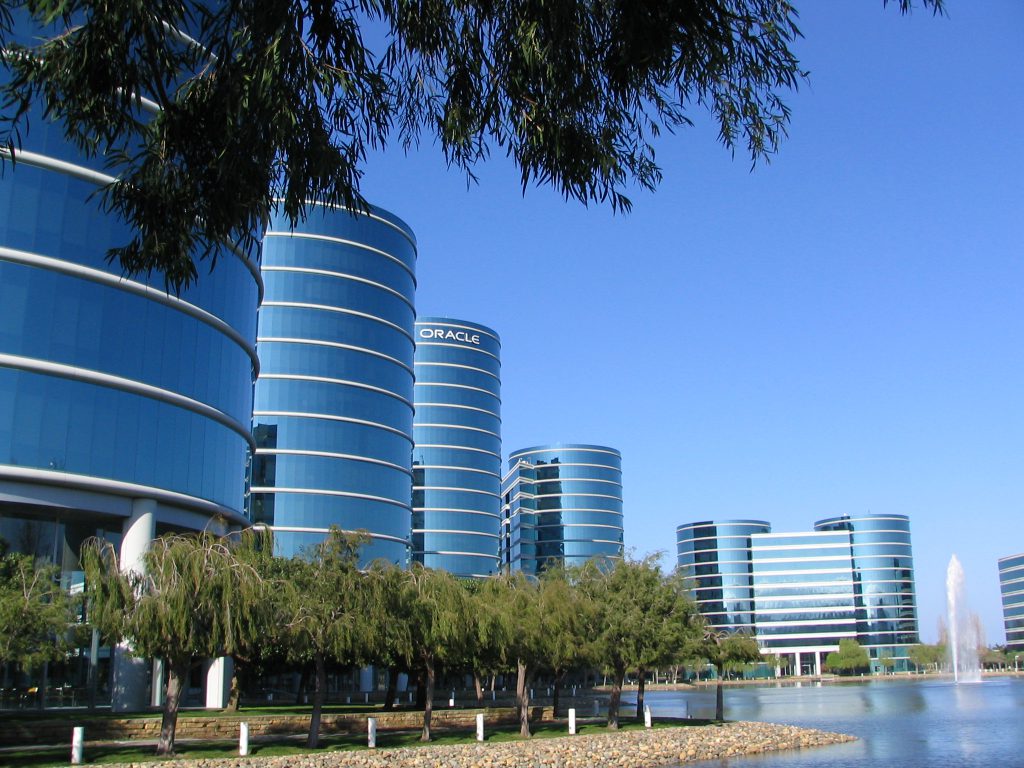In a remarkable turnaround that has caught the tech world by surprise, Oracle Corporation, a 47-year-old enterprise software giant, has emerged as a significant player in the artificial intelligence (AI) boom. This unexpected revival has not only boosted Oracle’s market performance but also positioned it as a formidable competitor in the rapidly evolving AI landscape, challenging perceptions of the company as a relic of the pre-cloud era.
Surpassing Tech Giants: A Financial Triumph
Oracle’s recent financial results have stunned Wall Street and industry analysts alike. Following an impressive fiscal first-quarter report, the company’s shares soared 13% to $145.03, a clear indicator of renewed investor confidence. Let’s break down the numbers:
- Revenue increased by 8% year-over-year to $12.45 billion
- Net profit jumped to $2.93 billion from $2.42 billion
- Stock price has risen 34% year-to-date, outpacing the S&P 500’s 15% gain
- Oracle’s performance has surpassed tech behemoths like Microsoft, Amazon, and Google
This financial resurgence is particularly noteworthy given Oracle’s historical reputation as a slow-moving, legacy enterprise software provider. The company’s ability to outperform younger, more agile competitors in the AI space has forced many to reassess their views of Oracle’s potential and adaptability.
Strategic Positioning in the AI Market: A Masterstroke
Oracle’s success in the AI market can be attributed to several key strategic decisions and inherent advantages:
- Neutral Stance in AI Development: Unlike many of its competitors, Oracle has chosen not to develop its own large-scale AI models. This strategic neutrality has made Oracle an attractive partner for companies that may view other service providers as potential competitors. By focusing on providing infrastructure and services rather than competing directly in AI model development, Oracle has carved out a unique and valuable position in the market.
- Extensive and Modern Data Center Network: Oracle’s network of 162 data centers globally has proven to be a significant asset. These facilities, many of which were built relatively recently, are well-suited for the computationally intensive task of training AI models. This infrastructure gives Oracle a competitive edge in the growing market for AI computing power, allowing it to offer state-of-the-art facilities to clients looking to develop and train large AI models.
- Strategic Partnerships Across the Tech Landscape: Oracle has demonstrated remarkable agility in forging partnerships with major players in the tech industry:
- Collaboration with Microsoft, allowing Oracle’s databases to run on Azure and supporting Microsoft’s Bing AI chatbot on Oracle servers
- Partnership with Google Cloud, expanding Oracle’s reach in the cloud computing space
- Recent strategic alliance with Amazon Web Services (AWS), bridging previous competitive gaps
- Major deal with Nvidia to deliver sovereign AI solutions globally, combining Oracle’s cloud infrastructure with Nvidia’s AI computing capabilities
These partnerships have not only expanded Oracle’s technological capabilities but also significantly broadened its market reach.
- Industry Connections and Leadership: Co-founder Larry Ellison’s long-standing relationships with tech leaders like Elon Musk and Jensen Huang have proven invaluable. These connections have facilitated partnerships, kept Oracle at the forefront of industry trends, and likely played a role in securing key deals and collaborations.
The AI Revenue Boom: Projections and Impact
The impact of AI on Oracle’s business model is expected to be transformative. According to a Morgan Stanley report, AI-related revenue is projected to grow from 15% of Oracle’s total revenues in fiscal year 2024 to over 50% by 2027. This shift represents a fundamental change in Oracle’s business composition and highlights the central role AI is expected to play in the company’s future growth strategy.
Future Prospects and Challenges: Navigating the AI Wave
While Oracle’s revival is impressive, the company faces several potential hurdles as it continues to navigate the AI landscape:
- Risk of an AI Industry Bubble: The current enthusiasm for AI could lead to unsustainable growth and eventual market correction. Oracle will need to ensure its AI strategy is built on solid, long-term foundations rather than short-term hype.
- Evolving Customer Base: As large tech companies develop their own AI capabilities (e.g., Elon Musk’s xAI), Oracle may face challenges in retaining these high-profile clients. Diversifying its customer base and offering unique value propositions will be crucial.
- Post-Training Retention: While Oracle benefits significantly from the initial training of AI models, this is often a one-time process. The company will need to develop strategies to retain clients for ongoing hosting and services after the initial training phase.
- Scaling Infrastructure: Oracle’s ambitious plans to expand from 162 to potentially 2,000 data centers present logistical and financial challenges. The company will need to carefully manage this growth to ensure it aligns with market demand and technological advancements.
Innovative Infrastructure Plans
Oracle’s forward-thinking approach to infrastructure is evident in its plans for future data centers:
- Designing a data center that will use over a gigawatt of energy, relying on three modular nuclear reactors
- Plans to create a range of data center sizes, from 50 kilowatts to much larger installations, to cater to diverse client needs
- Exploring innovative energy solutions to power its expanding data center network sustainably
Corporate Evolution: Geographic and Cultural Shifts
Oracle’s corporate evolution extends beyond its technological transformation:
- Relocated headquarters from Silicon Valley to Austin, Texas, reflecting a broader tech industry trend of moving away from traditional hubs
- Recently announced plans to move to Nashville, Tennessee, potentially tapping into new talent pools and benefiting from different regional incentives
These moves signify Oracle’s willingness to break from tradition and reshape its corporate culture and operational base to align with its new strategic direction.
Conclusion: A Model of Corporate Reinvention
Oracle’s transformation from a legacy database company to a key player in the AI revolution serves as a compelling case study in corporate reinvention. By leveraging its existing strengths, forming strategic partnerships, and positioning itself uniquely in the market, Oracle has not only survived but thrived in the face of rapid technological change.
As the AI landscape continues to evolve, Oracle’s journey will be closely watched by industry observers and competitors alike. Its success thus far demonstrates that with the right strategy, even established tech giants can pivot successfully and capture new opportunities in emerging technologies.
The coming years will be crucial for Oracle as it seeks to consolidate its gains and continue its growth in the AI sector. If successful, Oracle’s story may well become a blueprint for other legacy tech companies looking to reinvent themselves in the age of AI.





